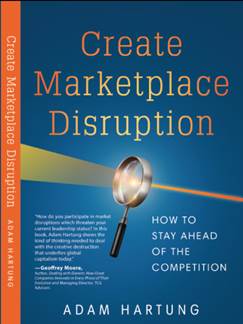What Business Leaders Can Learn From Bitcoin Fanatics

On August 15, Bitcoin rose to $4,000, I wrote a column about the crypto-currency. At the time, I thought Bitcoin was reasonably obscure, and I doubted there would be many readers. I was amazed when the column went semi-viral, and it has had almost 350,000 reads. But even more amazing was that the column generated an enormous amount of feedback. From email responses to Facebook remarks and Tweets I was inundated with people who, largely, wanted my head.
I found this confounding and fascinating. Why would an article that simply said a crypto-currency was speculative draw such an enormous response? And why such hostility? Just as I had not anticipated much readership, I certainly did not anticipate the reaction. These factors led me to research Bitcoin owners, and develop some theories on why Bitcoin is such a big deal to its enthusiasts.
1 – Bitcoin owners want the value to increase
I made the mistake of thinking of Bitcoins as a form of cash. Something to be spent. But I discovered most owners are holding Bitcoins as an asset. Because there are technical limits on how many Bitcoins can be created, and how quickly, these owners see the possibility of Bitcoin value increasing. As “investors” in Bitcoins, they don’t want anything (like a negative column) to put a damper on Bitcoin’s ability to rise.
Such speculation is not uncommon. Many people buy land, gold, silver and diamonds because they expect limited supply, and growing demand, to cause the value to rise. Other people buy Andy Warhol prints, vintage automobiles, signatures of historical people or baseball cards for the same reason. I prefer to call this speculation, but these people refer to themselves as investors in rare assets. Bitcoin investors see themselves in this camp, only they think Bitcoins are less risky than the other assets.
Regardless the nomenclature, anyone who is buying and holding Bitcoins would be unhappy to hear that the asset is risky, or potentially a bad holding. But unlike all those other items I mentioned, Bitcoins are not physical. To some extent merely owning the other assets has a certain amount of its own reward. One can enjoy a diamond ring, or a Warhol print on the wall while waiting to learn if its value goes up or down. But Bitcoins are just computer 1s and 0s, and really a new kind of asset (crypto-currency.) These investors are considerably younger on average, a bit more skittish, and considerably more outspoken regarding the future of their investment – and those who would be negative on Bitcoins.
While wanting their asset value to rise makes sense, it is rare that speculators have been as passionate as those who responded on Bitcoin. I’ve written about many companies I feared would lose value, and thus were speculative, but those columns did not create the fervor with responses like those regarding Bitcoin
2 – Confusion between Bitcoin and Blockchain technology
Blockchain is the underlying technology upon which Bitcoins are created. I have now read a few hundred articles on Bitcoins and Blockchain.
I was struck at just how confusing authors on these topics can be. They will say the two are very different, but then go on at great length that if you believe in Blockchain you should believe in Bitcoins. Few columns on Blockchain don’t talk about Bitcoins. And all Bitcoin authors talk about the wonders of Blockchain.
There is no doubt that Blockchain technology is new to the scene, and shows dramatic promise. Many large organizations are investigating using Blockchain for uses from financial transaction clearing to medical record retention. This is serious technology, and as it matures there are a great many people working to make it as trustworthy as (no, more trustworthy than) the internet. Just as the web requires some rules about URLs, domain naming, page serving, data accumulation, site direction, etc. there are serious people thinking about how to make Blockchain consistent in its application and use – which could open the door for many opportunities to streamline the digital world and make our lives better, and possibly more secure.
There were many, many people who disliked my skeptical view of Bitcoins, and based their entire argument for Bitcoinvalue on their belief in Blockchain. I was schooled over and again on the strength of Blockchain and its many future applications. And I was told that Blockchain technology inherently meant that Bitcoins have to go up in value. Buying Bitcoins was frequently referred to as investing in “Internet 2.0” due to the Blockchain technology.
It is clear that without Blockchain you could not have Bitcoins. But the case demanding one owns Bitcoin because it is built on Blockchain (“the technology of the future” as it is referred to by many) is still being developed. To them I was the one who was confused, unable to see the future they saw built on Blockchain. There were hoards of people who were almost religious in their Bitcoin faith, indicating that there was yet still more underlying their passion.
3 – As trust in government declines, there is growing trust in technology
More than ever in modern history, people have little faith in their government. In the USA, favorable opinions of Congress and its leaders are nearly non-existent. And favorable opinions for the current President started out below normal, and have gotten considerably worse. It is reported now with some regularity that Americans have little trust in the President, Congress, Courts – and the Federal Reserve.
There were, literally, hundreds of people who sent messages talking about the failure of government based currencies. Most of these examples were South American, but still these people made the point, loudly and clearly, that governments can affect the value of their currency. Thus, these Bitcoin investors had lost faith in all government backed securities, including the U.S. dollar, euro, yen, etc. They believed, fervently, that only a currency based on technology, without any government involvement, could ever maintain its value.
Today if someone is asked to give personal information for a census on their city, county, state or country they will often refuse. They want nothing to do with giving additional information to their government.
But these same people allow Facebook, Google and Amazon to watch their most private communications. Facebook records their emotions, their personal interactions, friends, complaints and a million other things going on in users’ lives to develop profiles of what is interesting to them in order to send along newsfeeds, information and ads. Google has recorded every search everyone has ever done, and analyzes those to develop profiles of each person’s interests, concerns, desires and hundreds of other categories to match each with the right ad. Amazon watches every product search made, and everything purchased to profile each person in order to push them the right products, entertainment, news and ads. And they all sell these profiles, and a lot of other personal information, to a host of other companies who do credit ratings, develop credit card offerings and push their own items for sale.
People who have no faith at all in government, and don’t believe government entities can make their lives better, leave their cookies on because they trust these tech companies to use technology to make their lives better. They believe in technology. Are these folks losing privacy? Maybe, but they see a direct benefit to what the technology operated by these tech companies can do for their lives.
For them, Bitcoin represents a future without government. And that clearly drives passion. Blockchain is a bias free, regulator free technology platform. Bitcoin is a government free form of currency, unable to be manipulated by the Federal Reserve, Exchequer of the currency, European Central Bank, Congress, Presidents, the G7, or anyone else. For the vocal Bitcoin owners, they see in Bitcoin a new future with far less government involvement, based on Blockchain technology. And they trust technology far more than they trust the current systems. They claim to not be anarchists, but rather believers in technology over human government, and in some instances even religion.
Leadership lessons from my Bitcoin journey
Often we try to explain away feedback, especially negative feedback or feedback that is hard to interpret, with easy answers. Such as, “they just want their asset to go up in value.” That is a big mistake. If the feedback is strong, it is really worth digging harder to understand why there is passion. Never forget that every piece of negative feedback is a chance to learn and grow. It is almost always worth taking the time to really understand not only what is being said, but why it is being said. There could be a lot more to the issue than face value.
If things are confusing, it is important to sort out the source of the confusion. If I’m talking about a currency, why do they keep talking about the technology? Saying “they don’t get it” misses the point that maybe “you don’t get it.” It is worth digging into the confusion to try and really understand what motivates someone. Only by listening again and again and again, and trying to really see their point of view, can you come to understand that what you think is confusing, to them is not. They aren’t confused, they see you as confused. Until you resolve this issue, both parties will keep talking right past each other.
You cannot lead if you do not understand what other people value. Their belief system may not match yours, and thus they are reaching very different conclusions when looking at the same “facts.” While I may trust the Fed and the ECB, and even banks, if others don’t then they may well have a very different view of the future.
When leaders lose the faith of those they are supposedly leading, unexpected outcomes will occur. Leaders cannot lead people who don’t trust them. Using the power of their office to force their will on others, and forcing conformance to existing processes, methods and systems can often lead to strong negative reactions. People may have no choice short-term but to do as instructed, but they may well be plotting (investing) longer term in a very different future. Failing to see the passion with which they are seeking that different future will only cause the leadership gap to widen, and shorten the time to a disruptive event.



